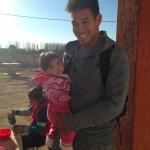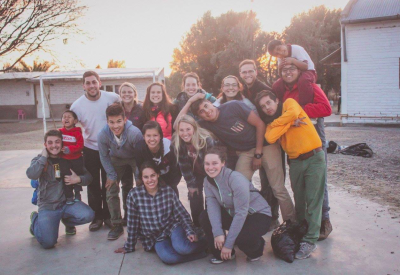This summer, I had the opportunity to visit Buenos Aires and San Rafael Argentina in order to serve on a mission trip. While there, I was able to learn first hand about protection for the unborn in both a cultural and legal capacity. In brief, my observation on the sanctity of human life in Argentina can be summed up in one word: Complicated.
While the current law in Argentina declares that all abortion is illegal, there are several loopholes that are changing this conversation for the worse. The first follows a Supreme Court decision from 2007 which gives expecting mothers the option of securing an affidavit stating that their children were conceived in rape or their health is being severely compromised due to a pregnancy. In these cases, these mothers can receive permission to have an abortion. The reason that this particular exception is such a problem is that it is slowly introducing a lack of respect for an unborn child’s life. All children’s lives are valuable, regardless of the circumstances under which they were conceived.
Aside from the legal question, it is evident that many in Argentina do not understand the value of human life. According to a 2007 study conducted by Argentina’s ministry of health, the illegality of abortion in Argentina is not preventing many women from seeking them. Judging by the hospital records from post-abortive complications, at least 460 thousand women seek illegal abortions each year in Argentina, showing that Argentina’s culture of death is inconsistent with its laws that protect life. (“Página/12 : El País : Las Cifras Para Abrir El Debate.” Página/12 : El País : Las Cifras Para Abrir El Debate. Web. 12 Aug. 2015)
Furthermore, Argentina is home to a myriad of outspoken anti-life feminist organizations who are currently working for abortion rights in Argentina. Just walking in the Plaza de Mayo, you can easily see the pro-choice activism through graffiti and frequent protests. In addition, several progressive political figures including Carmen Argibay and Ginés González García have made their support for abortion made known publicly, thus reducing the stigma attached to killing innocent human life.
The reason that a culture of life in Argentina is so necessary is because we know from experience in the US that culture changes laws, which further change culture. A culture of death may lead to a weakening of laws protecting the unborn in Argentina. Further, as one of the most developed countries in Latin America, Argentina’s ruling on the status of life has an incredible capacity to influence Pro-Life legislation in other Latin American Countries. In other words, Argentina could be described as the equivalent of a swing state if abortion was being voted upon and Latin American Countries were the voting parties.
The good news is that while these findings may seem bleak both culturally and legally, I am also happy to report having met countless people who are committed to protecting the sanctity of human life in Argentina. While there, I had the honor of serving in a home for women who have disabilities and are single mothers to young children. The goal of this ministry is to empower these women, many of whom were victims of rape, to be good mothers to their children. To me, this is the goal of the pro-life movement; to love mothers and their children. While bold, I believe that it is fair to presume that if more homes like this existed, the desire for abortion rights in Argentina would subside and respect for life would increase immensely.




